Taylor leaves lasting legacy in Sharpe program and beyond
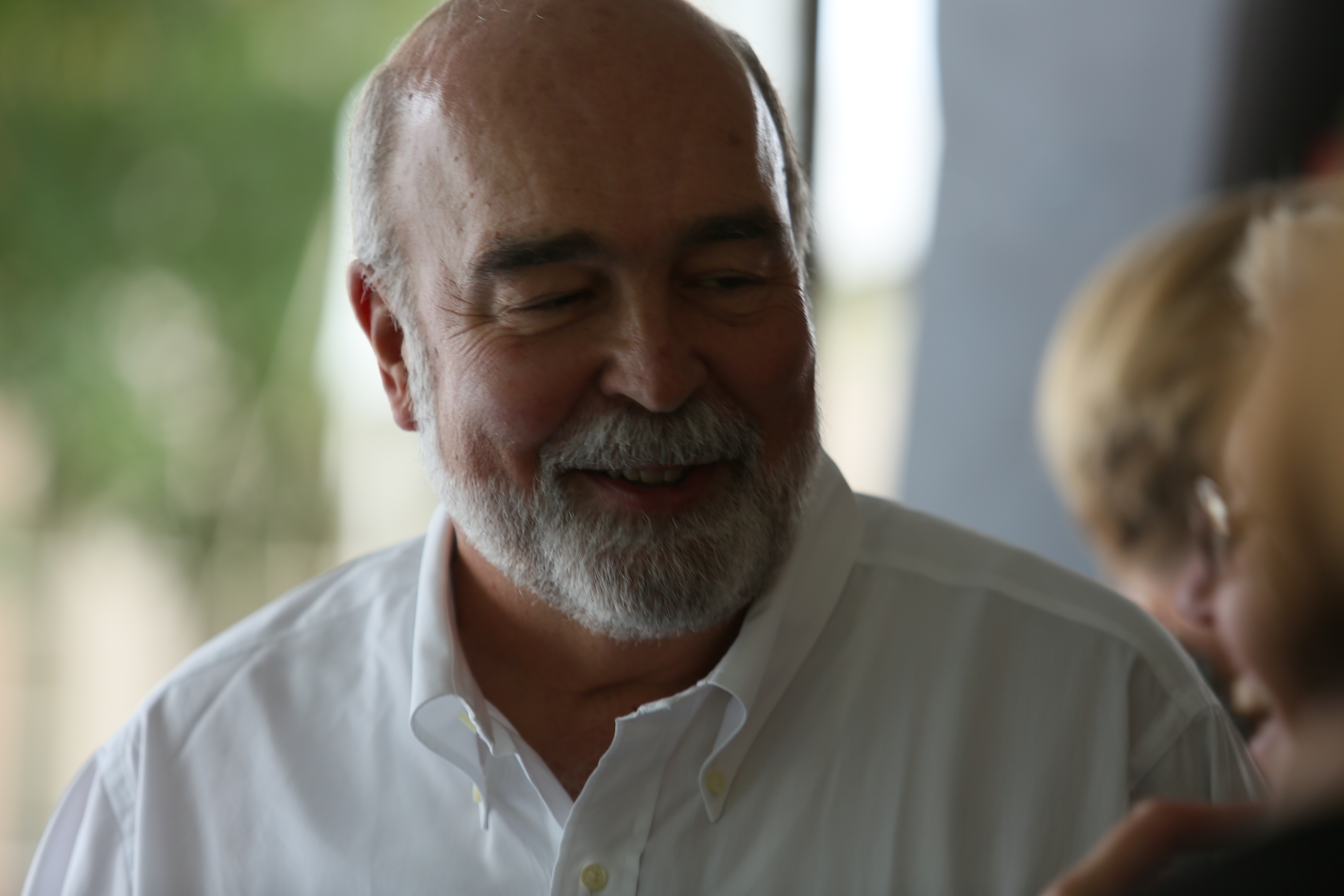 Dr. Dennis Taylor, Professor of Marine Science and faculty in the Sharpe Community Scholars Program, retires this summer after more than twenty years of teaching and mentoring students in community-based research.
Dr. Dennis Taylor, Professor of Marine Science and faculty in the Sharpe Community Scholars Program, retires this summer after more than twenty years of teaching and mentoring students in community-based research.In an interview with Sharpe graduate assistant, Kate Harrison MA ‘24, Taylor reminisced on the passions that motivated him throughout his career in the marine and environmental sciences.
Asking the big questions
“People ask me what I do, and I am an Oceanographer; that’s what I’ve been,” Taylor said. “You’re never just that thing. My model has always been not the great scientists, but the great artists. They are constantly reinventing themselves; they do something great, then go right back to the beginning, and start from scratch.”
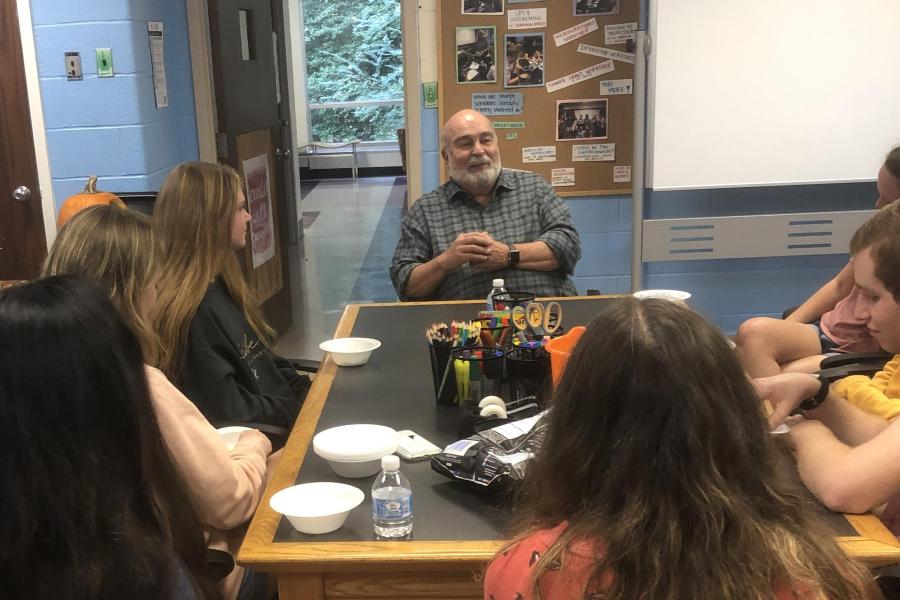 In his Sharpe COLL150 course, “Living with the Environment,” Taylor challenged students to entertain environmental studies from a philosophical perspective. Apart from his lectures on the climate and sustainability, Taylor posed questions asked by centuries of scholars and environmentalists.
In his Sharpe COLL150 course, “Living with the Environment,” Taylor challenged students to entertain environmental studies from a philosophical perspective. Apart from his lectures on the climate and sustainability, Taylor posed questions asked by centuries of scholars and environmentalists.He explained, “I tell students, it’s really more of a philosophical question, a very ancient philosophical question… What is this all for? Where do I fit into this? What are my obligations, benefits to doing this work?”
Research with impact
Taylor’s tenure in Sharpe spans eras of dramatic curricular changes at William & Mary and pedagogical evolutions in the Sharpe Program, from project-based learning in classes and community to interdisciplinary research training for applied learning with and within communities.
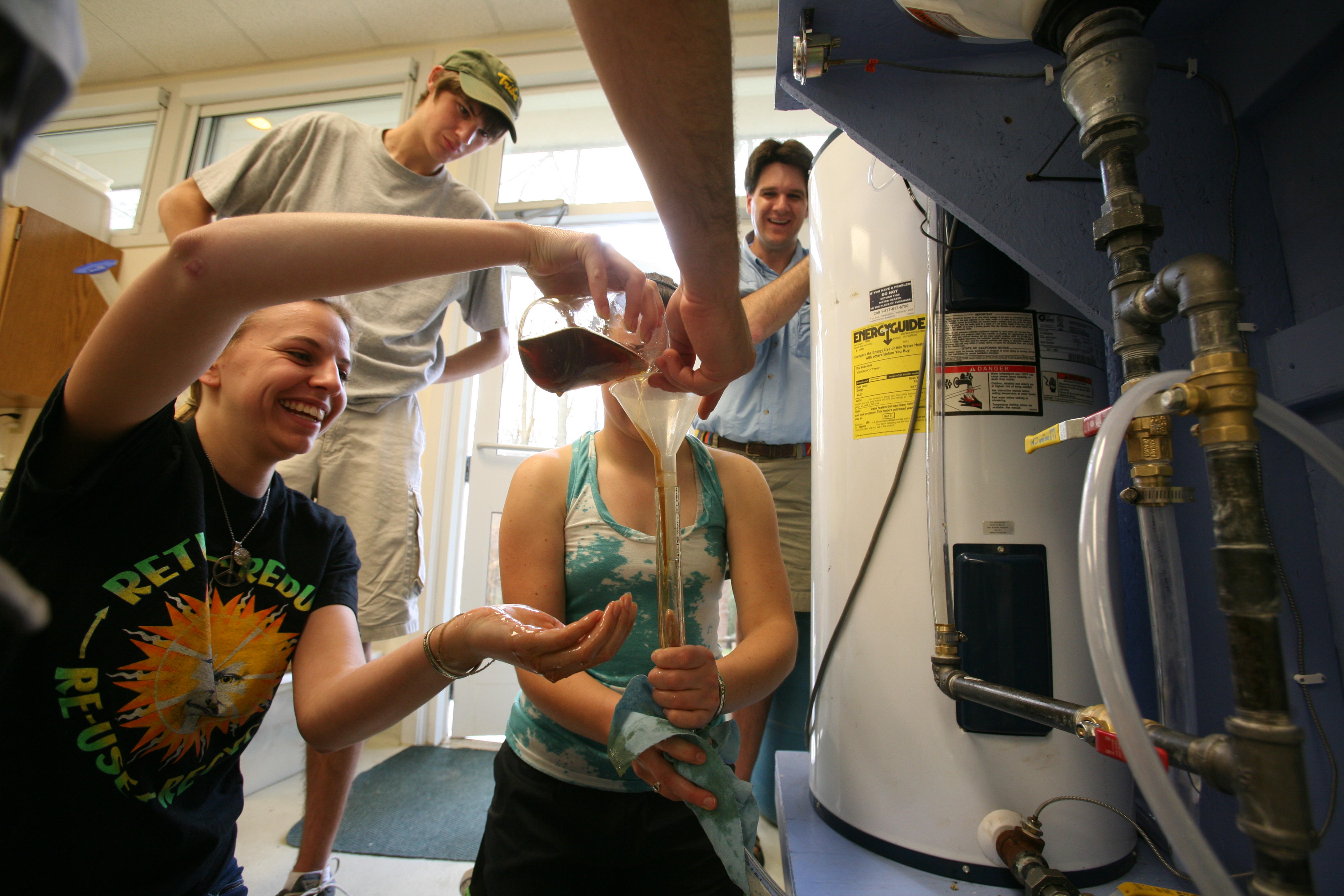 In earlier years, Taylor led numerous initiatives, including one that earned him the President’s Award for Service to the Community in 2008: constructing a biofuel plant.
In earlier years, Taylor led numerous initiatives, including one that earned him the President’s Award for Service to the Community in 2008: constructing a biofuel plant. Inspired by two Sharpe Scholars in his “Living with the Environment” seminar, Taylor learned about the local Unitarian church’s need for low-cost alternatives to heat its building. With equipment donations by community members, Taylor and his students constructed a biofuel plant that transformed excess cooking oil donated from local restaurants into fuel. A large majority of the biofuel produced was donated to the church’s furnace.
Under Taylor’s guidance, the biodiesel plant project continued for many years, providing Sharpe Scholars with practical experience in community-based research that supported a local institution.
Lessons learned and taught
Taylor also described important lessons learned while working alongside community partners and balancing the interests of local businesses and organizations.
“The interesting thing with the Sharpe Program, particularly, [is to] try and put students in a situation where they need to be adaptive and learn to communicate, and work and try and realize that there are different pathways for success,” He said.
For more than two decades, Taylor has challenged his Sharpe Scholars to contemplate broader questions of meaning and purpose for exploring environmental studies, and worked with students to find answers that shaped their capacity to do community-engaged research.
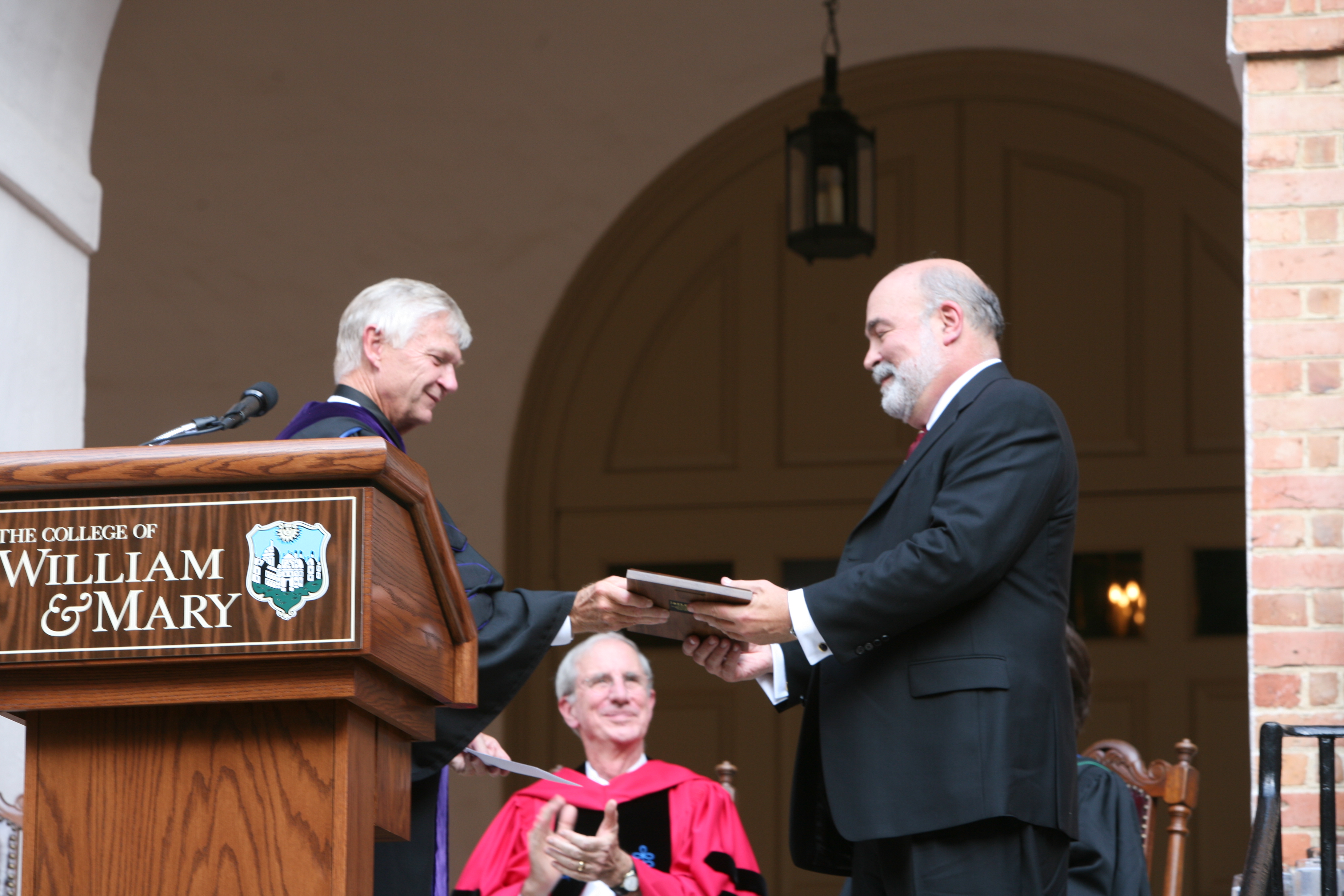 For Taylor, introducing complex concepts for critical inquiry while mentoring students through their own investigations about the environment and their place in it was like planting a seed and nurturing their growth.
For Taylor, introducing complex concepts for critical inquiry while mentoring students through their own investigations about the environment and their place in it was like planting a seed and nurturing their growth.“When you grow something, when you plant a tree, it is because you have a vision, you have a purpose and a future . . . Tomorrow is important; what I do today, I may never see what happens tomorrow. Teaching is like that; you don’t know the outcome, but you have hope,” Taylor explained.
An enduring legacy
Taylor leaves a legacy of Sharpe alumni actively engaged in environmental research, activism, and policy development in the service of sustainability. Among his words of wisdom to incoming Sharpe Scholars: “Social change is never perfect . . . Change does not always happen smoothly,” Taylor said. “What you want to do is listen to what people are saying they need. Don’t approach it with a preconceived idea; ‘this is my solution.’”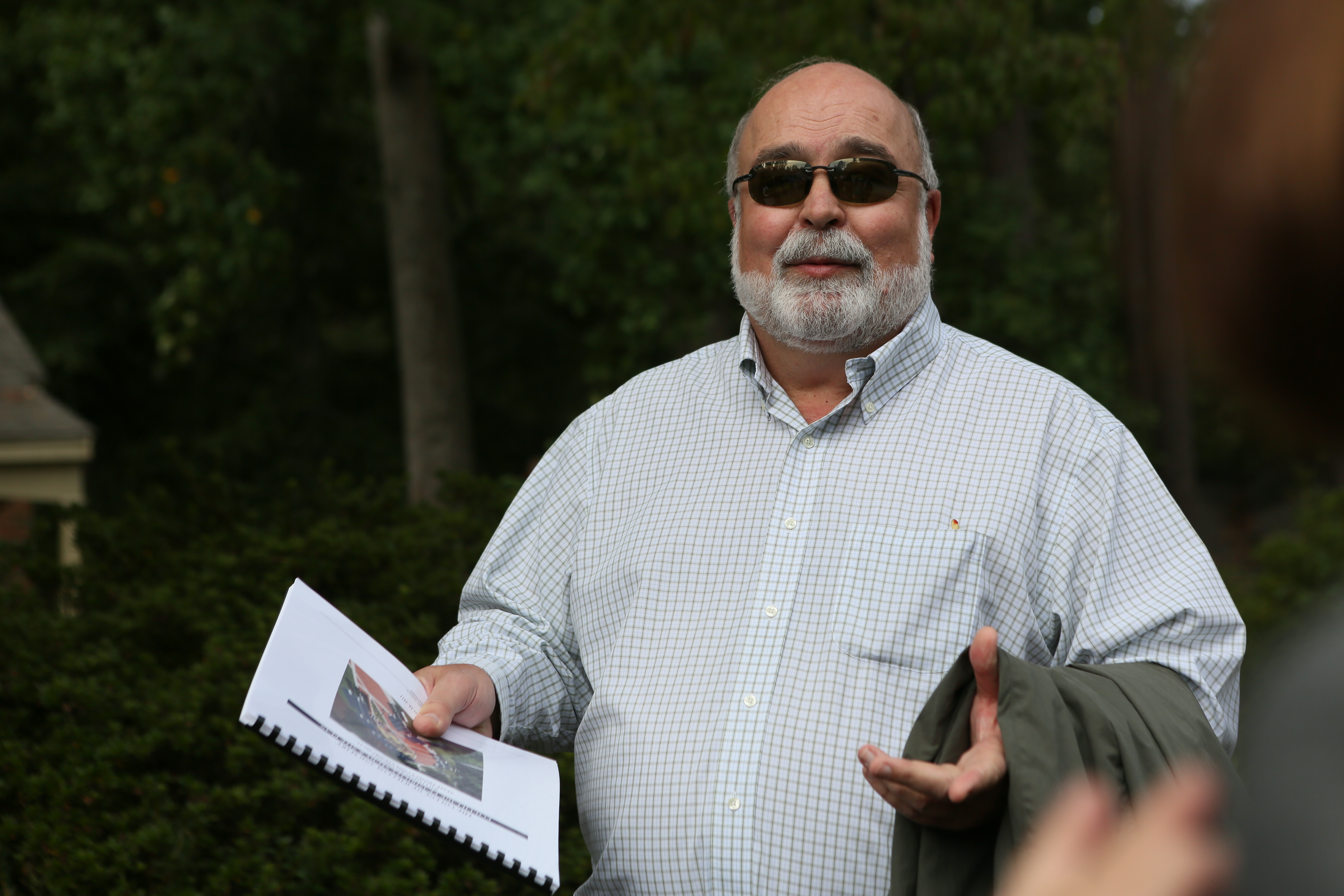 Dr. Monica Griffin, Director of Engaged Scholarship and the Sharpe Community Scholars program, has worked alongside Dennis Taylor since 2004 and recalls the alumni who grew out of Taylor’s course into a range of experiences and professions, from Peace Corps to environmental policy, planning and law.
Dr. Monica Griffin, Director of Engaged Scholarship and the Sharpe Community Scholars program, has worked alongside Dennis Taylor since 2004 and recalls the alumni who grew out of Taylor’s course into a range of experiences and professions, from Peace Corps to environmental policy, planning and law.
“Dr. Taylor has been a pillar in the Sharpe Program,” Griffin said. “His warm mentorship and wisdom will be greatly missed by both colleagues and students. Those of us at the Sharpe Program wish Dr. Taylor all the best in his retirement.”
 Skip to main content
Skip to main content




